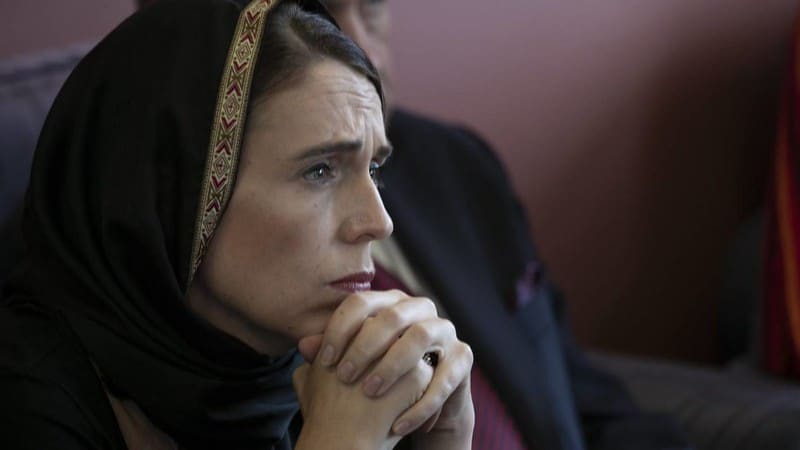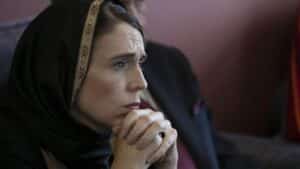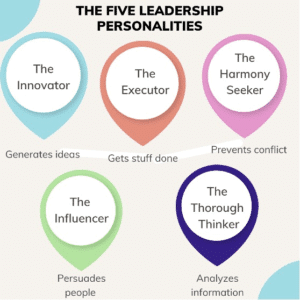I was delighted to be at a special screening of “The Prime Minister” last night in Martha’s Vineyard, with a Q&A by the very talented directors Lindsay Utz and Michelle Walshe. The film is about Jacinda Ardern, the former Prime Minister of New Zealand.
The film features private footage taken by Ms. Ardern’s husband, audio diaries from her time in office, and heartfelt interviews, protest footage, etc.
I have long been an admirer of Ms. Ardern for her empathetic style and courageous approach to countering COVID-19 in New Zealand. She acted quickly and decisively, while many other world leaders hedged or even blatantly denied the severity of the virus. (My personal favorite was Lukashenko of Belarus instructing his people to drink vodka and visit the saunas to combat the virus. Never mind that the virus was highly infectious; closed spaces in proximity to others was explicitly a health hazard. And then, of course, the famous bleach instructions from Donald Trump.)
A fellow leadership practitioner calls out Ardern’s effective utilization of the Mayfield model in crisis, blending direction-giving, meaning-making, and empathy.
Her Facebook lives during Covid, clad in sweatpants after putting her toddler to bed, were compassionate, authentic, caring, and transparent. She told you what she did know and what she didn’t know. She encouraged people to check in on their neighbors who lived alone. She created a tiered alert system to lessen ambiguity for people in a deeply uncertain time. She displayed hope whilst still acknowledging how difficult lockdown was for people.
She was consistent on her COVID response, even in light of horrific anti-vaccine mandate protests (peppered with Trump flags??), graphic abuse, and conspiracy theories targeting her and her family. The gallows drawn around a public picture of her highlighted the threats of violence that have become omnipresent against female politicians. In the film, it was clear she agonized over the decision of when to shut down New Zealand and to what extent, recognizing the impact shutdowns had on the economy, on mental health, and on domestic violence. But she was determined not to let people die- that was her guiding force- saving human lives. She thoroughly reviewed every scientific report she could find, trying to make the best decision according to science. That was also something that struck me — and shouldn’t have — respecting science and medical experts vs. baseless conspiracy theories.
What struck me in the film was a woman who cared deeply about her people and took it upon herself to be responsible for their lives. (This bears stark contrast to the Trump/Musk actions of crushing USAID, crippling healthcare access to Americans, and letting women die rather than give them access to reproductive healthcare.)
Her approach was largely successful – to illustrate, New Zealand had 52.88 deaths per 100,000 people, whilst the US had 341 deaths per 100,000 people.
Other aspects I’d use to describe her leadership:
Deliberate
Steadfast
Compassionate
Family oriented
Negotiator
Consensus builder
Culturally sensitive
Savvy
Diplomatic
Particular/careful about what she says and what she doesn’t
Reflective
Insightful
Academy and Tony Award-nominated filmmaker Julie Taymor was also in the audience at the screening. (Taymor is famous for The Lion King and Frida) She commented on how powerful traditionally “feminine” traits were to Ardern’s leadership style. Taymor shared, “Aspects that people think are feminine are so powerful and important, but they’re often denigrated. Everything about her is everything we need in a leader.”
Ms. Ardern was also an emblem of another feminist leadership value, “practice what you preach.” After the Christchurch shootings, when 51 Muslims were senselessly murdered, she swiftly took action to put in place a gun buyback program and pass legislation restricting the purchase of semi-automatic weapons. Many Americans think it was an easy unilateral sweeping of the pen – it wasn’t- , she still had to bring together three parties to agree on reversing decades-old gun policies.
Whilst watching the film, when the bill was passed banning semi-automatic weapons, the entire audience exploded with applause. The burning desire and desperation to finally ban assault style weapons was overwhelmingly palpable in that screening room.
Ms. Ardern also led the charge to legalize abortion in the country, created free access to sanitary products in schools, banned plastic bags, and enacted a net-zero carbon act, among other things.
She also normalized motherhood in office- she was the first elected leader ever to bring her baby to the floor of the UN General Assembly.
But what I love the most about Ms. Ardern is her optimism. She says in the film that “optimism is moral courage.” In the book “How Remarkable Women Lead,” by Johanna Barsh, the unifying trait of remarkable women leaders was optimism.
I have built on that term and coined a new one that I think is in line with the moment “grounded optimism.”
What is grounded optimism?
Grounded optimism is having awareness of what is going on in the world, without denying it, but still holding onto hope that things can and will change for the better. It’s having faith in humanity despite people’s actions and sickening world events that momentarily make you think depravity has overtaken.
The expression of grounded optimism by a leader fuels motivation and action. Because it is grounded in reality and appreciates the starkness of what is happening on the ground, it is not out of touch. It incorporates a multi-stakeholder approach and an inspirational vision that carries people along the yellow brick road.
However, it’s also tough to cultivate grounded optimism in the face of darkness. As she remarks in the film,” it is hard not to turn on the news some days and just think the world is a dumpster fire. How do we shine a light on the humanity that I know is still there amongst everything else? Then she sighs -“that’s what keeps me going anyway”” she says. The Q&A remarked -“It is a spiritual practice to cultivate joy and also be in the world and see what we are doing to ourselves.” Ms. Ardern constantly struggled to remain optimistic in the face of horror. Still, she was determined to keep that part of herself and not let the chaos and abject hate sink in. And it was this optimism and transparency that carried her people through the worst global pandemic in history.
And this is exactly what we desperately need today in the face of an attack on human rights, women’s rights, healthcare, immigrants, etc, and it’s what I try to cultivate every day in The Women’s Leadership Challenge.
It was also interesting to hear the director’s perspective on why some Kiwis turned against her after she won a landslide victory in the previous election. Some anger was LinkedIn to COVID restrictions, but Lindsay also mentioned that her global popularity did a disservice to her domestically due to “tall poppy syndrome.”
This phenomenon, which emerged in Australia and New Zealand in the 1980s, refers to “tall poppies”- the bold, successful, high achievers who rise above the rest. The syndrome is a cultural behavior that emphasizes cutting down, disparaging, attacking, and even sabotaging those people. It is rooted in egalitarian values; however, it ultimately discourages ambition. It also disproportionately targets ambitious, successful women, who are already viewed with suspicion by societies that lack cultural roots in this phenomenon. The inexplicable vitriol against Hillary Clinton is one potent example of this. In the The Women’s Leadership Challenge I consistently push women to rise, whilst acknowledging that there can be backlash, and then when we work together on how to navigate that.
The film ends with Ardern’s agonizing decision to step down and not run for office again. It was clear that she was just plain tired. She essentially said that if another major crisis struck, she may not have enough “in the tank,” to lead through it. I have so much respect for someone who is that self-aware, recognizes their limits, and does the opposite of what we have seen many male (and sometimes female) leaders do – hold onto power at any cost, even when the people would be better led by someone else. Some examples: Bashar al Assad (Syria), Nicolas Maduro (Venezuela), Trump (America), Biden (America), Lukashenko (Belarus) – I could go on and on.
Ardern’s recently released memoir, A New Kind of Power, just hit shelves, and echoes many of the themes in my TED talk – namely, how transformational leaders use power differently. (https://www.ted.com/talks/samantha_karlin_the_power_of_the_powerless)
What are your thoughts on the term grounded optimism, and your opinion on Jacinda Ardern? I’d love to know.
(Lindsay’s next film covers the audacious and visionary founding of NPR. The latter was founded by four legendary women in 1971: Linda Wertheimer, Susan Stamberg, Nina Totenberg, and Cokie Roberts.
This is particularly timely given Congress’s withdrawal of funding from public broadcasting – 1.1 billion dollars slashed, which will decimate local radio stations. And yet, raising funding for documentaries has never been harder. Reach out if you’d be interested in financing this important film)





